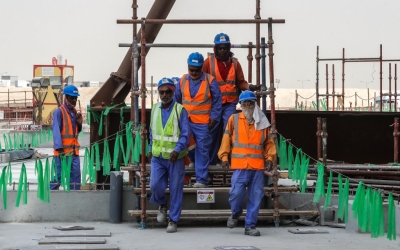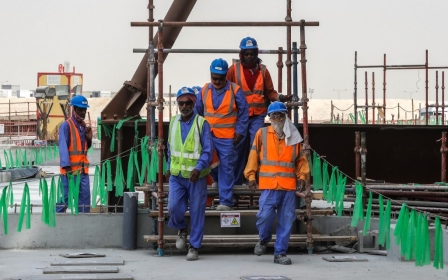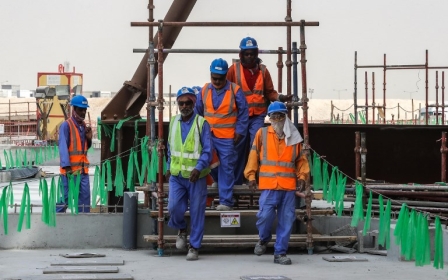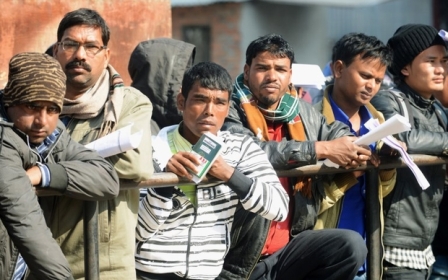Qatar's wage protection laws are proving ineffective, HRW says
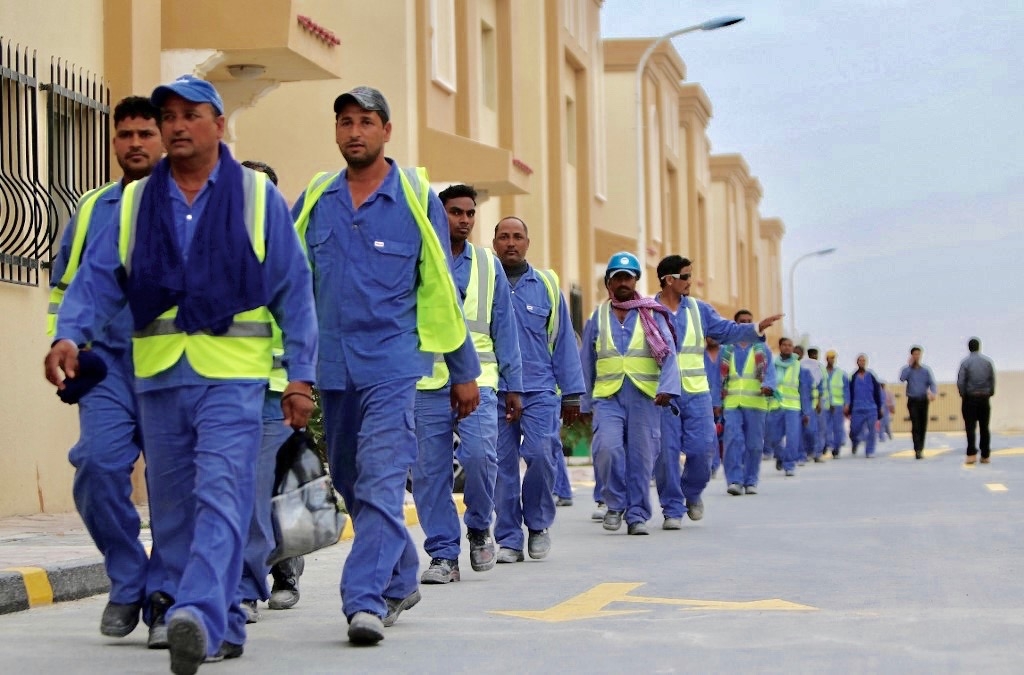
Qatar’s effort to ensure the payment of workers’ salaries in the gas-rich emirate "falls short" of international standards, Human Rights Watch said in a report on Saturday.
Most of the country's 2.75 million residents, 90 percent of whom are foreigners, are from poor developing countries working on projects linked to the 2022 World Cup.
Officials established a wage protection scheme (WPS) in 2015 to detect non-payment of salaries following criticism of its labour rights record from Amnesty International and Human Rights Watch among others, AFP reported.
Still, HRW said one unidentified Qatari company failed to pay managers for five months and labourers for two months, highlighting issues in the labour ministry's monitoring of wage non-payment.
The company's projects include a World Cup stadium in Doha and road construction. It employs about 6,000 people and some workers' outstanding salaries were only paid after a number of affected staff staged protest action, HRW said.
Unauthorised public protests and trade union activism are illegal in Qatar.
Still, Qatar is currently scrapping key aspects of its controversial "kafala" labour rules, including the requirement for some workers to obtain employers' permission to change jobs and exit permits to leave the country.
Houtan Homayounpour, a spokesman for the International Labour Organisation (ILO), recently told Middle East Eye that while domestic workers must inform their employers they plan to leave, they will not have to seek their permission for an exit permit.
"Qatar has passed some laws to protect migrant workers, but the authorities seem more interested in promoting these minor reforms in the media than in making them work," said HRW's deputy Middle East director Michael Page.
More than 500 managers, including engineers, surveyors, and supervisors, had gone without pay since last September, according to seven managers canvassed by HRW.
Most have now been reimbursed with the rest expecting to receive their back pay by 16 February, the managerial staff said, while labourers had been brought up to date by 7 February.
"The findings expose a systemic failure that has a bearing on all employers operating in Qatar," HRW said.
A joint report issued by the labour ministry and the UN's International Labour Organisation in June 2019 said "wage abuses... are still far too common".
The issues, four years on from the introduction of the scheme, were shown "by the rate of non-compliance... and the number of complaints lodged".
Still, “the WPS has led to more timely payment of wages and reduced a range of wage abuses," it added.
Middle East Eye delivers independent and unrivalled coverage and analysis of the Middle East, North Africa and beyond. To learn more about republishing this content and the associated fees, please fill out this form. More about MEE can be found here.


